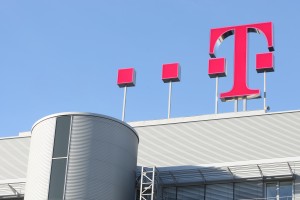Berlin creates a smartphone app to tackle neo-Nazism
Article 
La ville de Berlin lance une application «contre les nazis» | La Figaro (French language | Langue Française)
From the horse’s mouth
Berlin Against Nazis (Berlin Gegen Nazis)
Press Release (German Language / Deutsche Sprache)
My Comments
Another smartphone app has been developed for the community good, this time in Germany. Here, it is a notification app to distribute information about the issue of neo-Nazism to people who live in Berlin.
“Against Nazis” (“Gegen Nazis”), which this fully-free app is called, serves more as a bulletin-board app which shows what is going on around town concerning neo-Nazi activity through the use of push notifications and an interactive map. Through these technologies, this information is distributed effectively real-time. This app allows users to act on the information in order to show solidarity against the neo-Nazi activity that is going on near them or to effectively strengthen the network’s activity. This app has been delivered in German, English and Turkish because of Germany having a distinct presence of Turkish people.
It has been developed by the “Berlin Gegen Nazis” (Berlin Against Nazis) network which is supported by the Berlin local government. This was brought on by a member of this network who was engaged in an anti-Nazi march in Rudolf Hess’s home town when a far-right group effectively took over that march.
The neo-Nazi groups still maintain a presence in Germany although they have a low impact on the national polls and on Berlin’s polls. In relation to Berlin, they have presence in poorer areas of the city like Schöneweide in the former East Berlin. It is also known that people who lived in the former East-Germany areas were soft towards the extreme-right ideology.
This is another way where the mobile phone platforms are being used for the public good especially due to the ease of access that these platforms provide. It also involves creating an information-delivery backbone which is cost-effective for these community organisations.



![German countryside - By Manfred&Barbara Aulbach (Own work) [CC-BY-SA-3.0 (http://creativecommons.org/licenses/by-sa/3.0) or GFDL (http://www.gnu.org/copyleft/fdl.html)], via Wikimedia Commons](https://homenetworking01.info/wp-content/uploads/2014/08/Feldweg_in_der_Nähe_von_Diemelstadt-300x199.jpg)
![Map of Europe By User:mjchael by using preliminary work of maix¿? [CC-BY-SA-2.5 (http://creativecommons.org/licenses/by-sa/2.5)], via Wikimedia Commons](https://homenetworking01.info/wp-content/uploads/2014/06/512px-Blank_map_europe_coloured.svg_-300x229.png)
